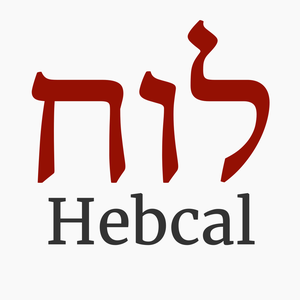Your comments
Hi Josh, thanks for using Hebcal, and thanks for this bug report.
You are correct, and we've fixed the bug in our Torah Readings so the Shabbat Chanukah maftir algorithm isn't blindly assuming that it's the entire weekday reading. On the days where it should only be the first 6 p'sukim (as it was 2 years ago when you posted this bug report), it now shows the correct reasding.
Our sincere apologies for the lateness of this reply.
Hi, thanks for using Hebcal.
The search for chametz takes place after nightfall on the evening before Pesach. For the upcoming year, that would be the evening of Tuesday, 4 April 2023
tzeit7083deg: 20:20
tzeit85deg: 20:30
tzeit42min: 20:20
tzeit50min: 20:28
tzeit72min: 20:50
The definition of nightfall varies by custom. Here are the definitions in more detail.
tzeit7083deg – Nightfall (3 medium stars) – Tzeit 7.083°
When 3 medium stars are observable in the night sky with the naked eye (sun 7.083° below the horizon)
tzeit85deg – Nightfall (3 small stars) – Tzeit 8.5°
When 3 small stars are observable in the night sky with the naked eye (sun 8.5° below the horizon)
tzeit42min – Nightfall (3 medium stars) – Tzeit 42 minutes
When 3 medium stars are observable in the night sky with the naked eye (fixed 42 minutes after sunset)
tzeit50min – Nightfall (3 small stars) – Tzeit 50 minutes
When 3 small stars are observable in the night sky with the naked eye (fixed 50 minutes after sunset)
tzeit72min – Nightfall (Rabbeinu Tam) – Tzeit 72 minutes
When 3 small stars are observable in the night sky with the naked eye (fixed 72 minutes after sunset)
https://www.hebcal.com/zmanim?cfg=json&city=London&date=2023-04-04
Thanks for using Hebcal, and we're so sorry to hear that you're having difficulty with the candle lighting year-at-a-glance page.
We aren't able to reproduce the problem, but we'd like to help out as other could be having the same issue. Could you send us some additional information to help us diagnose the possible cause of the problem?
* Desktop/laptop, tablet, or mobile phone?
* If regular computer, which operating system? (Windows, macOS, ChromeOS, etc)
* Which web browser? (Safari, Chrome, Edge, Firefox, etc)
* What's the ZIP code you're using?
* Include any screen captures of the page so we can see how the arrows at the bottom are showing up
We've added the mincha Torah reading for Tisha B'Av and also for the minor fast day Mincha.
https://www.hebcal.com/holidays/tisha-bav
https://www.hebcal.com/holidays/tzom-tammuz
https://www.hebcal.com/holidays/taanit-bechorot
(etc)
Tish’a B’Av / תִּשְׁעָה בְּאָב
Torah Portion: Deuteronomy 4:25-40
- 1: Deuteronomy 4:25-29 · 5 p’sukim
- 2: Deuteronomy 4:30-35 · 6 p’sukim
- 3: Deuteronomy 4:36-40 · 5 p’sukim
Haftarah: Jeremiah 8:13-9:23 · 34 p’sukim
Tish’a B’Av (Mincha)
Torah Portion: Exodus 32:11-14, 34:1-10
- 1: Exodus 32:11-14 · 4 p’sukim
- 2: Exodus 34:1-3 · 3 p’sukim
- 3: Exodus 34:4-10 · 7 p’sukim
Haftarah: Isaiah 55:6-56:8 · 16 p’sukim
Thanks for the suggestion! We have added a Convert today’s date link to our Hebrew Date Converter web page
Hi, thanks for contacting Hebcal.
Yes! Check out this page:
Candle-lighting Times Year at a Glance
Fill out the form below to get Shabbat and holiday candle lighting times and Parashat haShavuah (weekly Torah Portion) for the entire year on a single page. You can print it out and post it on your refrigerator.
https://www.hebcal.com/home/shabbat/fridge
Shabbat shalom!
Customer support service by UserEcho

